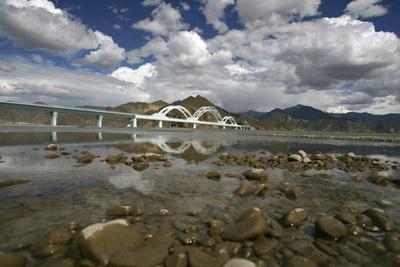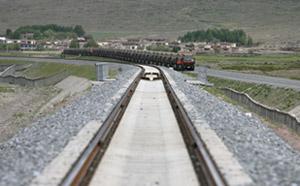The plan to open the Qinghai-Tibet Railway on July 1 caused an escalation of violent protests by many Tibetans. Exiled Tibetans approached the Chinese Embassy in India to protest against trains leaving for Lhasa. Protesters clambered over iron fences at the embassy entrance and burned the Chinese Communist Party’s (CCP) national flag. They scuffled with local police and embassy guards; many demonstrators were arrested. Exiled Tibetan organizations are planning to hold large-scale global demonstrations on July 1 to oppose the opening of the Qinghai-Tibet Railway.
Beijing announced that the Qinghai-Tibet Railway has the potential to help develop Tibet, but dissidents in Tibet say that the railway will bring about unexpected social and economic pressures, and further alienate Tibetans, thus bringing more damage to Tibetan culture.
Beijing Disregards Human Rights and Livelihood
A Tibetan human rights activist said that the Qinghai-Tibet Railway will erode Tibet’s traditional culture and destroy the surrounding environment. Tibetans will become more alienated and it will become increasingly difficult to earn their livelihood.
She said, “The Qinghai-Tibet Railway will further damage Tibetans’ interests. Today, people have to speak mandarin when finding jobs in Lhasa or other cities and towns of Tibet; migrating Han people have deprived Tibetans of their jobs. Therefore, the economic problems that Tibetans face are becoming worse. After the railway is opened, more Hans will come here and Tibetans will face increasingly severe hardships.”

